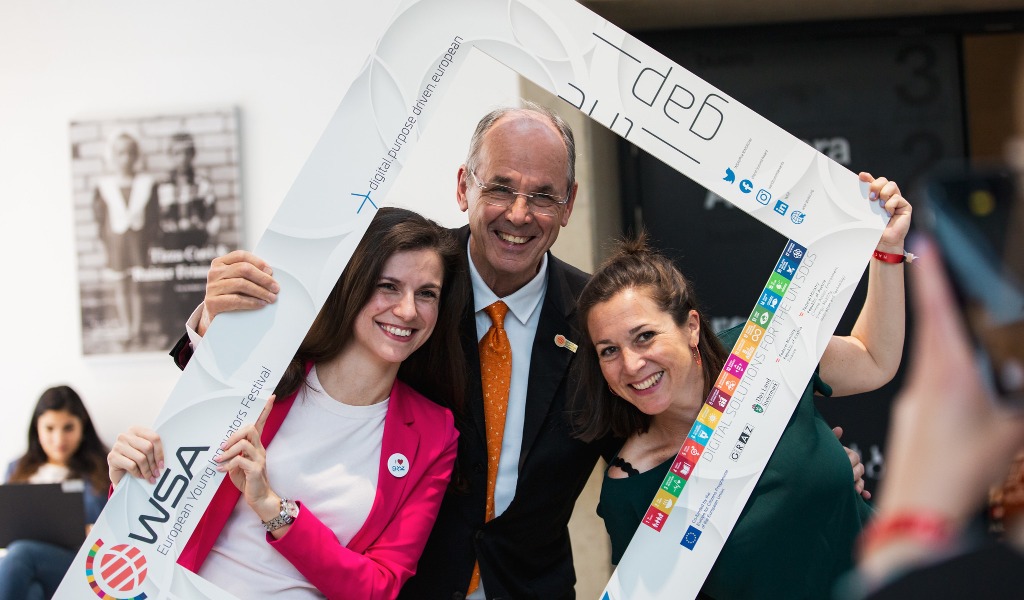A network of perceived lightness
Interview with WSA Chairperson Peter A. Bruck &
WSA Executive Manager Nora Wolloch
The first in-person meetings after Covid-19 have shown once more how important direct contact and exchange are for a network like the WSA community. People from quite different backgrounds joined the European Young Innovators Festival in Graz in May and the WSA Austria Ceremony & Summer Event in June to share experience & knowledge and create connections that make impact. That's exactly what WSA does in its actions, thoughts, and work—providing space to interact.
We talked to Peter A. Bruck, Chairperson of WSA, and Nora Wolloch, WSA Executive Manager, about what is so special about the WSA network, what steps are needed for a better world and which European initiatives can also be effective globally.
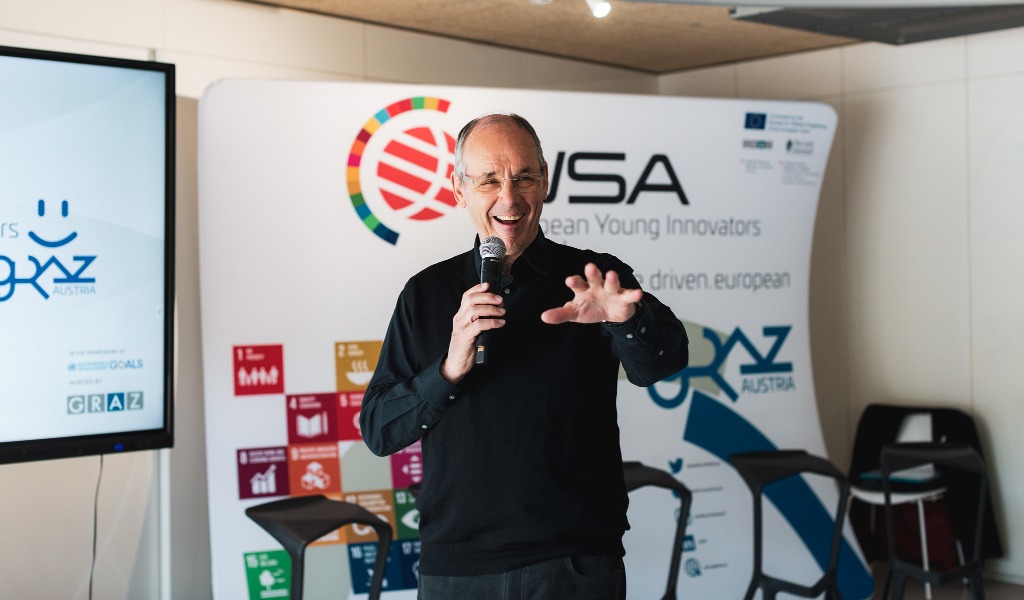
Peter A. Bruck
Q: Summer in the Northern Hemisphere also marks the beginning of the annual WSA cycle with the call for applications, WSA National Experts are scouting their country’s eco-system for their nominees and Youth Ambassadors are motivating their peers. Tell us about the importance of this time of the year.
Nora: WSA is a very special platform. Already the nomination process in every UN member state is of great importance guaranteeing the representation of global diversity as well as local innovation. In WSA these two go uniquely hand in hand. The range of the categories and the focus on content-driven applications are equally unique.
PAB: WSA maintains a consistency in global outreach and in award categories and we yet keep always up to date and focused on specific target groups. This requires constant self-critical questioning, a courageous approach and, above all, no complacency and inertia in success. We constantly think about improvement and optimization, even if things go well. Thus, as human beings, we are in the transience of time and if we do not face it, we will be dead.
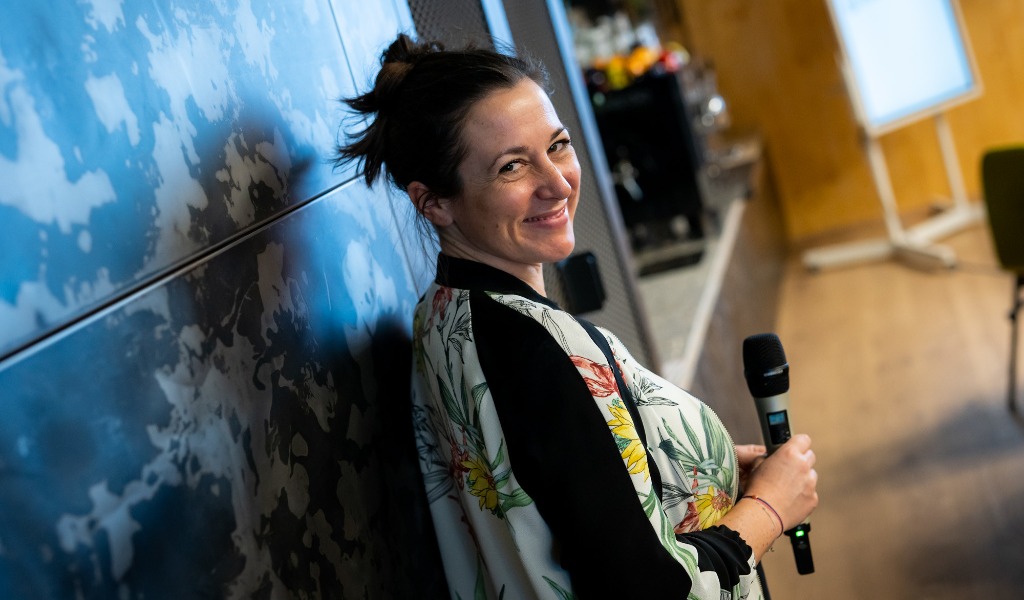
Nora Wolloch
Q: Would you describe the desire to always move forward to make a difference as an essential characteristic of the WSA network?
PAB: Yes. To put it clearly, the important point is that people in the network have more desire to change something in an environment that is not ideologizing. Instead, the WSA works with perceived lightness, and that attracts people.
That is the special thing about WSA and its events. People fall into a feeling of naturalness, which means an enormous, also psychological relief about the way things are. Mathias Haas, our WSA Austria expert, has absorbed this almost osmotically and transformed it perfectly in his own way.
So, there are many people, all very different, with great talent and skills, who know that this is going in the right direction. In a direction that corrects and optimizes itself constantly.
Nora: It is an important observation that there is almost something healing in the community created by WSA, facing the different regional realities with serenity and yet clarity. It is distinct in its orientation and values, but broad and open to accommodate differences without becoming an empty shell. There is something strongly energizing about that.
Q: Can the "WSA mode" be a model for a more just society? What would that mean in terms of responsibility?
Nora: WSA demonstrates the value of a multi-stakeholder and truly global community and how people communicate, collaborate and support each other—no matter how diverse they are in terms of culture, religion, gender, age, socio-economic or educational background. Listening and learning from each other teaches to be more empathetic.
Participants recognize and reflect on their own bubbles—I believe this model is a small step towards a more just society.
PAB: In the "WSA world", if we want to call it that way, we also invite young people to our office in Salzburg for a few months so that they can have their own experiences with the team and our work. Why is that interesting? One thing we can change is how many young people we take seriously, in general and in their digital presence.
In our initiative WSA UniVation, the mission is to bring this mindset to universities and their curricula. As part of that program, students receive grades for their creative work on social impact projects.
That's the direction I'm thinking. I avoid any claims of having to save the world. WSA should not be experienced as something that claims to save the world, but as something that allows one to take small steps in the direction that what you are doing is meaningful, has a positive impact, and is not destructive to others. Everyone should act this way.
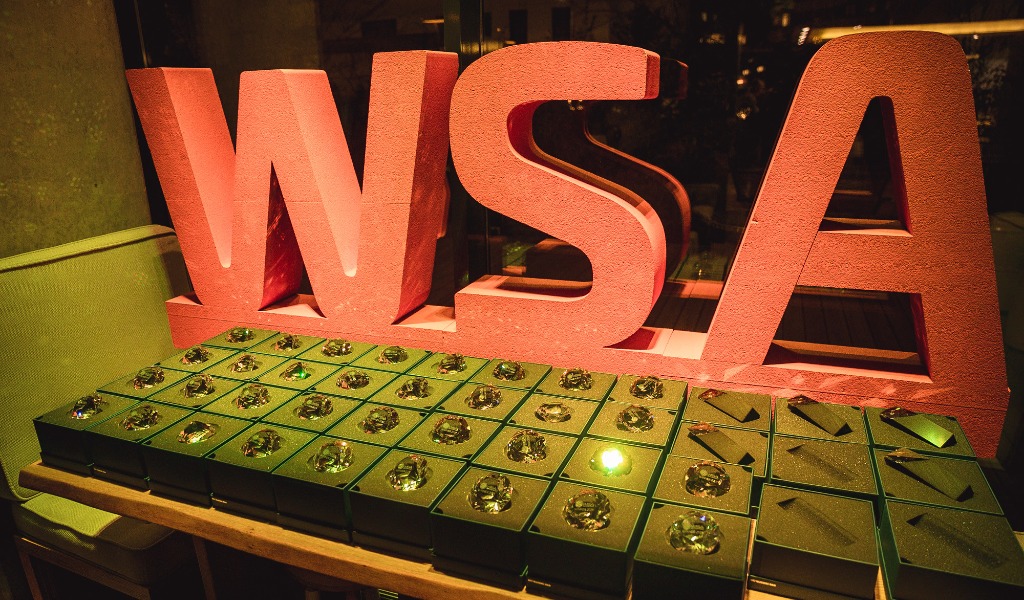
Q: What topics are you currently focusing on?
Nora: I am thinking a lot about the imperative of reducing our CO₂ footprint and the importance of bringing the WSA community together after COVID. The events WSA conducted in 2022 clearly showed the importance of in-person events—on the other hand it’s not very sustainable to fly people from all over the world to one place for a few days… I will address this dilemma and will continue with more hybrid event formats.
PAB: A topic that interests me is the new EU legislation on data management and services, how it will be implemented and whether it is a possible model for other regions of the world.
First, it's about bringing the real world into the digital world and to ensure the fundamentals are realizable. This is a generational project that many people are not even aware of, while others are lobbying massively against it—claiming a loss of freedom. A huge shift in investment has happened on the Internet and we have a dangerous concentration of technological infrastructures and platforms, a duopoly in terms of adverting revenues. There are essential questions revolving around the techno-economic fundamentals of the Internet.
Second, they are about regulations that are enforceable. Such regulations must be technologically mature while achieving broad social consensus.
Third, the framework for a secure environment for the evolution of AI across the metaverse to the virtual, brain-based Internet must be established.
Again, this is about reconceptualizing things. Of course, there is a conflict between the American Silicon Valley model and the Chinese surveillance model, that is, the capital-innovation model on the one hand, and the capital-state model on the other. The focus of Europeans is a different one, a democratic model. And that is something that we as WSA ought to also work on, promote and bring in.
Q: Will the EU realize this project and bring the European vision to the world?
PAB: Of course. But that is far too simplistic. Young people must realize that they will live in a world of war—just as there are proxy wars in Mali or in Serbia, there is also a war in the digital world. If these wars are fought violently depends on the ideology and the will of those in power. But in any case, there are serious conflicts of interest about what the future should look like. This is clearly evident in global projects such as the New Silk Road or international trade agreements.
And now ask me about WSA and what I think as Peter Bruck, and I will tell you why this very small initiative matters. WSA is significant because it shows a different way. The mode of doing things is critical, and it depends on how we live it at different moments and respond to challenges. There is a very clear, broad understanding here from which WSA can justify itself every step of the way. As said, WSA offers an environment that is not ideologizing—with no predefined position on what's best. It is a search and a community on how to do better.
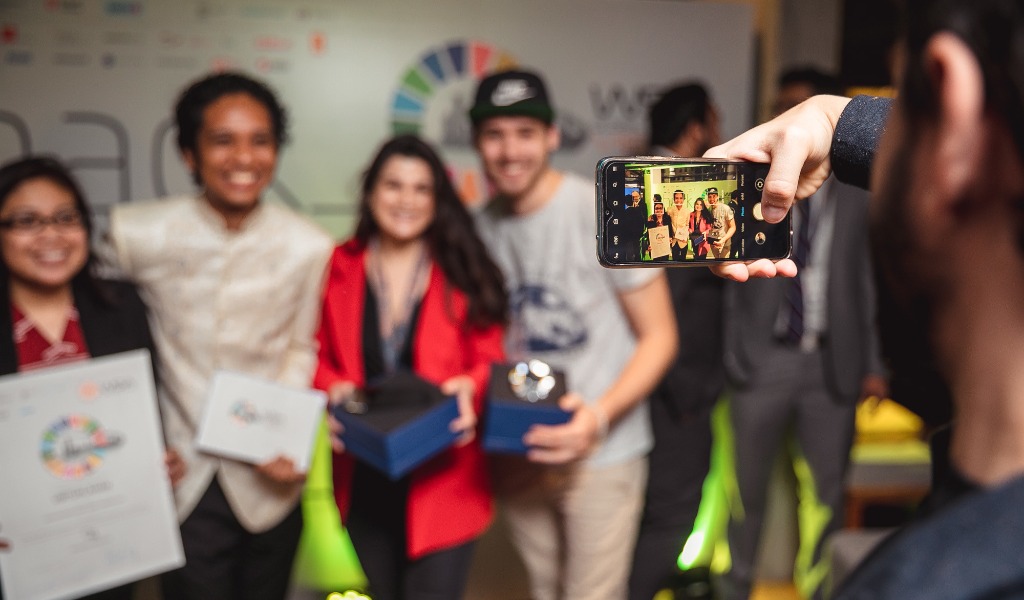
Header: Diana Materi, Peter A. Bruck, Nora Wolloch @ European Young Innovators Festival in Graz
